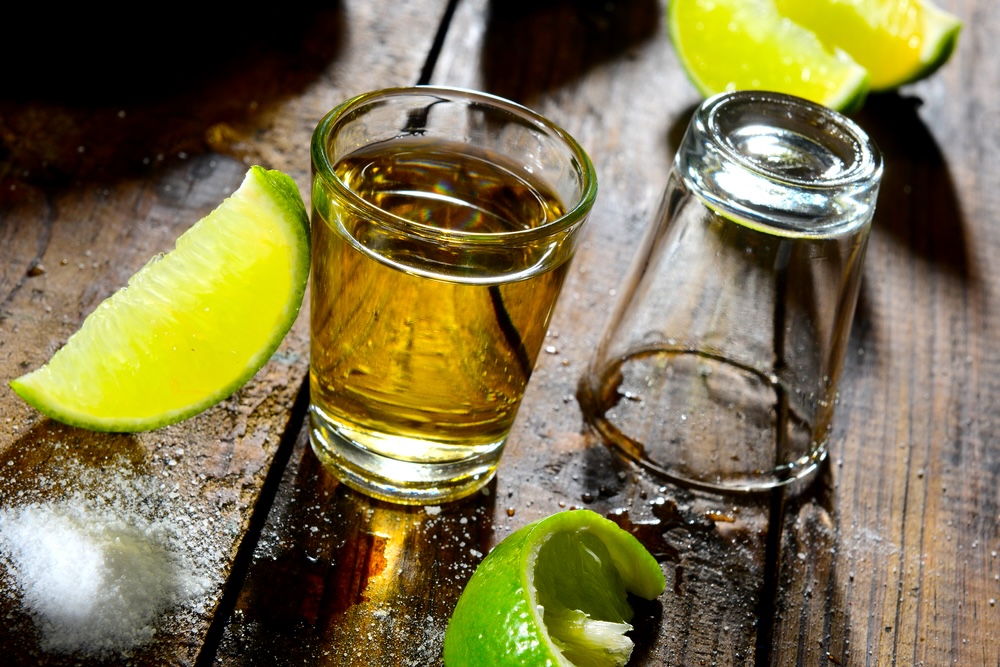You’re at a party, and there are rows of tequila shots lined up. You decide to down one, and within minutes, you feel a surge of energy. You’re buzzing, engaged in conversations, and generally feel an adrenaline rush. But wait, isn’t tequila supposed to be a downer?
There’s often confusion about alcohol categories, and with tequila, it’s no different. Is tequila a depressant, a stimulant, or somewhere in between?
In this article, we’ll explore the effects of tequila on the body and find out if it’s truly a depressant or not. We’ll look into how this alcoholic drink affects us physically and mentally. By learning more about what you’re drinking, it can hopefully help you make more informed decisions in the future.
What is Tequila?

The blue agave plant, central to tequila production, contains natural sugars that, when fermented and distilled, produce the characteristic flavor profile of tequila. The production and distillation process involves harvesting mature agave plants, extracting the piñas, cooking them to release their sugars, and then fermenting and distilling the resulting liquid to create tequila.
It’s worth mentioning that tequila is a type of mezcal, a broader category of agave-based spirits. The distinction between tequila and mezcal lies in the production process and the specific regions where they are produced. Unlike tequila, which can only be made from the blue agave plant in select regions of Mexico, mezcal can be crafted from various agave species and is produced across different Mexican states.
Tequila is a strong spirit, usually at 40% alcohol by volume. It falls into the category of potent drinks like vodka and whiskey. Because of the strength of tequila, consuming just two to three shots within an hour is generally enough to get you quite tipsy. More than that, you may find yourself blacked out and waking up with a tequila hangover the next morning.
Is Tequila a Depressant?
Yes, tequila is indeed a depressant. Along with feeling warm and buzzy, alcohol, in general, slows down your body’s systems and brain activity. It’s what leads to that relaxed, often sedating, effect. Once consumed, tequila, like many other forms of alcohol, interacts with the central nervous system, producing depressant effects.
So why are some people saying that tequila is a stimulant? The common myth that tequila is a stimulant is just that – a myth. The reason people mistake tequila as a stimulant rather than a depressant is because of the sudden euphoria you may feel after drinking. This high feeling is a short-lived buzz that can initially feel energizing.
When people drink tequila, they often experience an instant rush due to the strong alcohol content. This sensation can make it seem like tequila is a stimulant, but in reality, it’s just the initial reaction to the high alcohol concentration.
The euphoric feeling does not last long, however, as the sedating effect of tequila will soon kick in. This is why people often feel tired and sluggish after a night of drinking tequila, as the depressant effect of alcohol takes over.
Anecdotal evidence and personal experiences may lead people to believe that tequila is a stimulant, but the science is clear that it’s a depressant through and through.
Dangers of tequila abuse

Many young adults, especially students, often underestimate the strength of hard liquors such as tequila. Some even forgo the shot glasses and drink from the bottle. This is very dangerous because it can lead to excessive alcohol consumption and potential harm to the body.
Binge drinking, especially with a potent spirit like tequila, can rapidly raise your blood alcohol concentration to dangerous levels. Plus, tequila can also cause slurred speech, blackouts, and memory loss. This occurs when someone consumes a large amount of tequila in a short period of time, leading to impaired brain function and inability to form new memories.
Excessive tequila consumption can also have adverse effects on the blood sugar levels, liver, pancreas, and digestive system, leading to long-term health issues. It can also increase the risks of heart disease, high blood pressure, and certain types of cancer.
Best alcohol abuse in Lake Forest, CA
Drinking a shot of tequila may seem like a harmless social activity, but it is important to consume in moderation and be aware of the potential dangers.
If you or someone you know is struggling with tequila or any alcohol abuse, getting help is essential. Zoe Behavioral Health offers compassionate, evidence-based addiction treatment to aid in the recovery process, emphasizing wellness and long-term sobriety.
Remember, understanding your relationship with alcohol is the first step toward making healthier choices.
